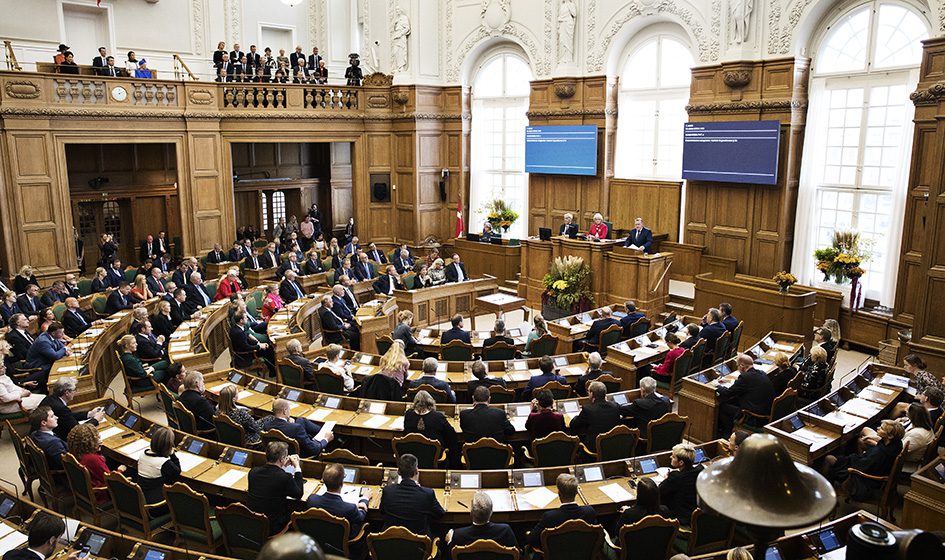On November 1st, the Danish people elected a new parliament. The outcome seated 12 parties in the Folketinget (seats before the election are in parentheses):
- Social Democrats: 50 seats (48)
- Venstre (centrist liberals): 23 seats (43)
- Moderates: 16 seats (-)
- Socialistisk Folkeparti (socialist): 15 seats (14)
- Danmarksdemokraterne (nationalist conservative): 14 seats (-)
- Liberal Alliance (libertarian): 14 seats (4)
- Konservative: 10 seats (12)
- Enhedslisten (socialist): 9 seats (13)
- Radikale (centrist): 7 seats (16)
- Nye Borgerlige (nationalist conservative): 6 seats (4)
- Alternativet (environmentalist): 6 seats (5)
- Dansk Folkeparti (nationalist conservative): 5 seats (16)
Incumbent prime minister and Social Democrat chairwoman Mette Frederiksen intends to hand in her resignation while negotiating a new alliance to come back with renewed parliamentary support. She is expected to lead an alliance that, in addition to her own party, includes the centrist-liberal Radikale, and three green-socialist parties: Socialistisk Folkeparti, Enhedslisten, and Alternativet.
Together, the five leftist parties have 87 seats, three short of a majority. A center-right coalition consisting of all other parties except Moderaterne control 72 seats. It is clear at this point where the Moderaterne party leans. Its chairman, Lars Løkke Rasmussen, is a former prime minister and former chairman of the Venstre center-right party.
The biggest winner of the election is Danmarksdemokraterne, the Danish Democrats, which gained 14 seats in the Folketinget, a first for the party. The DD is led by Inger Støjberg. She was formerly a member of the Venstre Party and served in previous cabinets as minister of employment and minister of immigration, integration, and housing. After a legal controversy over her handling of government-run asylum camps, she was prosecuted under a law on ministerial misconduct. She was sentenced to 60 days in jail.





